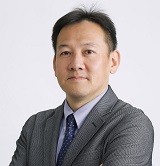Technical Program
Note: All the times listed below are in UTC+8
Tuesday, August 23, 2022
| 08:45 - 09:00 | Opening (YouTube Link) |
| 09:00 - 10:00 | Keynote 1 (YouTube Link) |
| 10:00 - 10:30 | Break |
| 10:30 - 12:00 | Session 1: Best Paper Candidates (YouTube Link) |
| 12:00 - 13:30 | Lunch |
| 13:30 - 15:00 | Session 2: Emerging and Hybrid Memory (YouTube Link) |
| 15:00 - 17:00 | Break |
| 17:30 - | Welcome Reception |
Wednesday, August 24, 2022
| 10:00 - 10:40 | Keynote 2 (YouTube Link) |
| 10:40 - 10:50 | Break |
| 10:50 - 11:30 | Keynote 3 (YouTube Link) |
| 11:30 - 13:45 | Banquet |
| 13:45 - 15:15 | Session 3: SW Issues for NVM (Invited Session I) (YouTube Link) |
| 15:15 - 15:30 | Break |
| 15:30 - 17:00 | Session 4: Solid-State Drive (YouTube Link) |
Thursday, August 25, 2022 (fully online)
| 10:30 - 12:00 | Session 5: Academic Research Centers of Excellence on Semiconductor in Japan (Invited Session II) (YouTube Link) |
Live Keynote 1 (Aug. 23, 09:00 ~ 10:00 UTC+8)
Title: Rethinking of Computing - Memory-Centric or In-Memory Computing Location: R102 Online Streaming: WebEx Room Speaker: Tei-Wei Kuo, National Taiwan University
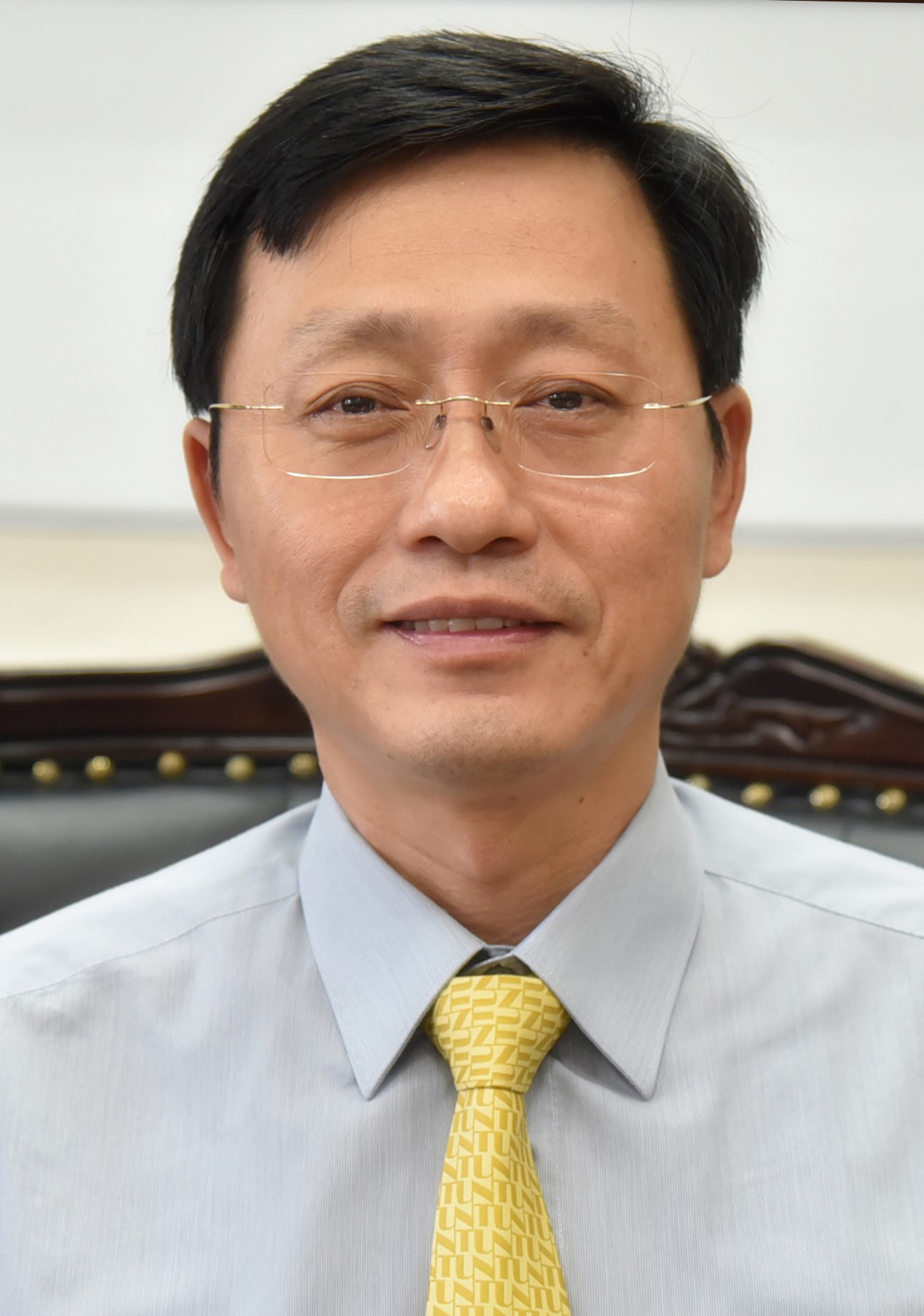 Abstract:
Flash memory opens a window of opportunities to a new world of computing over 20 years ago. Since then, storage devices gain their momentum in performance, energy, and even access behaviors. With over 1000 times in performance improvement over storage in recent years, there is another wave of adventure in removing traditional I/O bottlenecks in computer designs. In this talk, I shall first address the opportunities of new system architectures in computing. In particular, hybrid modules of DRAM and non-volatile memory (NVM) and all NVM-based main memory will be considered. I would also comment on a joint management framework of host/CPU and a hybrid memory module to break down the great memory wall by bridging the process information gap between host/CPU and a hybrid memory module. I will then present some solutions in neuromorphic computing which empower memory chips to own new capabilities in computing. In particular, I shall address challenges in in-memory computing in application co-designs and show how to utilize special characteristics of non-volatile memory in deep learning.
Biography:
Prof. Kuo received his B.S.E. and Ph.D. degrees in Computer Science from National Taiwan University and University of Texas at Austin in 1986 and 1994, respectively. He is now Distinguished Professor of Department of Computer Science and Information Engineering of National Taiwan University, where he was an Interim President (2017.10–2019.01) and an Executive Vice President for Academics and Research (2016.08–2019.01). Between August 2019 and July 2022, Prof. Kuo took a leave to join City University of Hong Kong as Lee Shau Kee Chair Professor of Information Engineering, Advisor to President (Information Technology), and Founding Dean of College of Engineering. His research interest includes embedded systems, non-volatile-memory software designs, neuromorphic computing, and real-time systems.
Dr. Kuo is Fellow of ACM, IEEE, and US National Academy of Inventors. He is also a Member of European Academy of Sciences and Arts. He is Vice Chair of ACM SIGAPP and Chair of ACM SIGBED Award Committee. Prof. Kuo received numerous awards and recognition, including Humboldt Research Award (2021) from Alexander von Humboldt Foundation (Germany), Outstanding Technical Achievement and Leadership Award (2017) from IEEE Technical Committee on Real-Time Systems, and Distinguished Leadership Award (2017) from IEEE Technical Committee on Cyber-Physical Systems. Prof. Kuo is the founding Editor-in-Chief of ACM Transactions on Cyber-Physical Systems (2015–2021) and a program committee member of many top conferences. He has over 300 technical papers published in international journals and conferences and received many best paper awards, including the Best Paper Award from ACM/IEEE CODES+ISSS 2019 and ACM HotStorage 2021.
Abstract:
Flash memory opens a window of opportunities to a new world of computing over 20 years ago. Since then, storage devices gain their momentum in performance, energy, and even access behaviors. With over 1000 times in performance improvement over storage in recent years, there is another wave of adventure in removing traditional I/O bottlenecks in computer designs. In this talk, I shall first address the opportunities of new system architectures in computing. In particular, hybrid modules of DRAM and non-volatile memory (NVM) and all NVM-based main memory will be considered. I would also comment on a joint management framework of host/CPU and a hybrid memory module to break down the great memory wall by bridging the process information gap between host/CPU and a hybrid memory module. I will then present some solutions in neuromorphic computing which empower memory chips to own new capabilities in computing. In particular, I shall address challenges in in-memory computing in application co-designs and show how to utilize special characteristics of non-volatile memory in deep learning.
Biography:
Prof. Kuo received his B.S.E. and Ph.D. degrees in Computer Science from National Taiwan University and University of Texas at Austin in 1986 and 1994, respectively. He is now Distinguished Professor of Department of Computer Science and Information Engineering of National Taiwan University, where he was an Interim President (2017.10–2019.01) and an Executive Vice President for Academics and Research (2016.08–2019.01). Between August 2019 and July 2022, Prof. Kuo took a leave to join City University of Hong Kong as Lee Shau Kee Chair Professor of Information Engineering, Advisor to President (Information Technology), and Founding Dean of College of Engineering. His research interest includes embedded systems, non-volatile-memory software designs, neuromorphic computing, and real-time systems.
Dr. Kuo is Fellow of ACM, IEEE, and US National Academy of Inventors. He is also a Member of European Academy of Sciences and Arts. He is Vice Chair of ACM SIGAPP and Chair of ACM SIGBED Award Committee. Prof. Kuo received numerous awards and recognition, including Humboldt Research Award (2021) from Alexander von Humboldt Foundation (Germany), Outstanding Technical Achievement and Leadership Award (2017) from IEEE Technical Committee on Real-Time Systems, and Distinguished Leadership Award (2017) from IEEE Technical Committee on Cyber-Physical Systems. Prof. Kuo is the founding Editor-in-Chief of ACM Transactions on Cyber-Physical Systems (2015–2021) and a program committee member of many top conferences. He has over 300 technical papers published in international journals and conferences and received many best paper awards, including the Best Paper Award from ACM/IEEE CODES+ISSS 2019 and ACM HotStorage 2021.
Live Keynote 2 (Aug. 24, 10:00 ~ 10:40 UTC+8)
Title:Challenges and Opportunities of Next-Generation Enterprise SSD Storage Location: R102 Online Streaming: WebEx Room Speaker: K.S. Pua, Phison Electronics Corp.
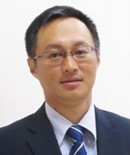 Abstract:
Data is driving the transformation of the world, including the Internet of Everything, AI, and high-speed computing technologies. All of which are driving the digital transformation of all industries, and assisting humans and enterprises to make faster and more accurate decisions through data analysis and artificial intelligence. In such a transformation process, data storage and reading and writing behaviors play a very important role; for example, the computing results of artificial intelligence come from the collection of big data, the foundation of cloud services comes from the construction of data centers, and the server environment for high-speed computing comes from the matching stable and high-speed enterprise-level storage architecture. What kind of challenges and opportunities will enterprise SSDs face due to the transformation of these digital technologies? Welcome to join the keynote speech of K.S. Pua, CEO of Phison, to explore the latest enterprise SSD technologies and development trends.
Biography:
KS Pua is the Founder, Chairman and CEO of Phison Electronics. He was born in a farming community Sekinchan in Selangor, Malaysia in 1974. At the age of 19, went to Taiwan with just US$4,000 in his pocket. With no relatives to help him, his only dream was to study hard, graduated from National Chiao Tung University (NCTU) in Hsinchu, Taiwan in 1997 and earned Master’s from NCTU in 1999. Mr. Pua and his four friends founded Phison Electronics Corp. in Taiwan. He designed and produced the world’s first single chip USB flash controller with other founders. Under his lead, the company has become a global leader in NAND Flash controller IC and storage solutions.
As an entrepreneur, Mr. Pua is a successful high-teck entrepreneur and the recipient of the Ten Outstanding Young Malaysian Awards , and received Outstanding Young Entrepreneur Award, Outstanding Young Manager Award and The President Award of National Management Excellence Award from the Government. He was elected as Fellow of Chinese Society for Management Of Technology in 2009. In 2010, Phison enjoyed turnover of US$1.06 billion, and had become the largest market of flash-memory related products in Asia-Pacific area and was named 65th in U.S. magazine Bloomberg Businessweek’s Tech 100. From 2015 to present, production value of Phison were ranked 3rd of IC Design Houses in Taiwan IC design industry.
Phison Electronics Corporation
Established in 2000 and headquartered in Hsinchu, Taiwan, Phison Electronics Corp. is a global leader in NAND Flash controller IC and storage solutions. The name Phi-son comes from “Five-Persons” since there were five founders who started the company as fresh graduates. In 2000, Phison developed world’s first single-chip USB flash drive controller, and successfully launched the USB-based product called Pen Drive. The term Pen Drive had since become symbolic in the realms of flash memory. For 20 years, Phison created of a wide range of innovative solutions over SSD, eMMC, UFS, SD and USB interfaces. Moreover, Phison provides system integration and total solution services across consumer, industrial and enterprise markets. As an active member in industry standards, Phison is on the Board of Directors for SDA, ONFI, UFSA and a contributor for JEDEC, PCI-SIG, MIPI, NVMe and IEEE-SA.
Abstract:
Data is driving the transformation of the world, including the Internet of Everything, AI, and high-speed computing technologies. All of which are driving the digital transformation of all industries, and assisting humans and enterprises to make faster and more accurate decisions through data analysis and artificial intelligence. In such a transformation process, data storage and reading and writing behaviors play a very important role; for example, the computing results of artificial intelligence come from the collection of big data, the foundation of cloud services comes from the construction of data centers, and the server environment for high-speed computing comes from the matching stable and high-speed enterprise-level storage architecture. What kind of challenges and opportunities will enterprise SSDs face due to the transformation of these digital technologies? Welcome to join the keynote speech of K.S. Pua, CEO of Phison, to explore the latest enterprise SSD technologies and development trends.
Biography:
KS Pua is the Founder, Chairman and CEO of Phison Electronics. He was born in a farming community Sekinchan in Selangor, Malaysia in 1974. At the age of 19, went to Taiwan with just US$4,000 in his pocket. With no relatives to help him, his only dream was to study hard, graduated from National Chiao Tung University (NCTU) in Hsinchu, Taiwan in 1997 and earned Master’s from NCTU in 1999. Mr. Pua and his four friends founded Phison Electronics Corp. in Taiwan. He designed and produced the world’s first single chip USB flash controller with other founders. Under his lead, the company has become a global leader in NAND Flash controller IC and storage solutions.
As an entrepreneur, Mr. Pua is a successful high-teck entrepreneur and the recipient of the Ten Outstanding Young Malaysian Awards , and received Outstanding Young Entrepreneur Award, Outstanding Young Manager Award and The President Award of National Management Excellence Award from the Government. He was elected as Fellow of Chinese Society for Management Of Technology in 2009. In 2010, Phison enjoyed turnover of US$1.06 billion, and had become the largest market of flash-memory related products in Asia-Pacific area and was named 65th in U.S. magazine Bloomberg Businessweek’s Tech 100. From 2015 to present, production value of Phison were ranked 3rd of IC Design Houses in Taiwan IC design industry.
Phison Electronics Corporation
Established in 2000 and headquartered in Hsinchu, Taiwan, Phison Electronics Corp. is a global leader in NAND Flash controller IC and storage solutions. The name Phi-son comes from “Five-Persons” since there were five founders who started the company as fresh graduates. In 2000, Phison developed world’s first single-chip USB flash drive controller, and successfully launched the USB-based product called Pen Drive. The term Pen Drive had since become symbolic in the realms of flash memory. For 20 years, Phison created of a wide range of innovative solutions over SSD, eMMC, UFS, SD and USB interfaces. Moreover, Phison provides system integration and total solution services across consumer, industrial and enterprise markets. As an active member in industry standards, Phison is on the Board of Directors for SDA, ONFI, UFSA and a contributor for JEDEC, PCI-SIG, MIPI, NVMe and IEEE-SA.
Live Keynote 3 (Aug. 24, 10:50 ~ 11:30 UTC+8)
Title: Overview of Arm Confidential Compute Architecture Location: R102 Online Streaming: WebEx Room Handout: Download PDF Speaker: David Hsu, ARM Inc
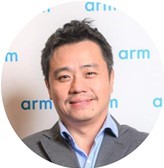 Abstract:
Confidential Computing is the protection of data in use, by performing computation within a trustworthy hardware-backed secure environment. This protection shields code and data from observation or modification by privileged software and hardware agents. In this talk, we will describe how the Arm Confidential Compute Architecture (Arm CCA) enables confidential computing in an Arm compute platform.
Biography:
David Hsu is FAE Director of Arm, leading FAE team of Taiwan for closer collaboration and communications internally and externally to accomplish partners and customers solutions. He has over 20 years of professional experience in the semiconductor industry. David Hsu joined Arm in 2011 as a CPU FAE as well as responsible for product marketing and sales project management and then left in 2017. After then, he joined Intelligo, a start-up invested by MediaTek, leading the business development team to explore opportunities in Japan, Korea, and US. In 2019 David was recruited by Arm again as FAE director to drive Arm’s IP solutions adoption. In addition to Arm, David worked at Faraday, Alpha Imaging Technology (MediaTek subsidiary) and BenQ, focusing on IC design work ranging from architecture definition, RTL coding, front-end/back-end implementation to IC verification and testing. He has rich experience in pre-sales strategy set-up and sales enablement. David received a master’s degree in Computer Science and Engineering at National Chiao Tung University.
Abstract:
Confidential Computing is the protection of data in use, by performing computation within a trustworthy hardware-backed secure environment. This protection shields code and data from observation or modification by privileged software and hardware agents. In this talk, we will describe how the Arm Confidential Compute Architecture (Arm CCA) enables confidential computing in an Arm compute platform.
Biography:
David Hsu is FAE Director of Arm, leading FAE team of Taiwan for closer collaboration and communications internally and externally to accomplish partners and customers solutions. He has over 20 years of professional experience in the semiconductor industry. David Hsu joined Arm in 2011 as a CPU FAE as well as responsible for product marketing and sales project management and then left in 2017. After then, he joined Intelligo, a start-up invested by MediaTek, leading the business development team to explore opportunities in Japan, Korea, and US. In 2019 David was recruited by Arm again as FAE director to drive Arm’s IP solutions adoption. In addition to Arm, David worked at Faraday, Alpha Imaging Technology (MediaTek subsidiary) and BenQ, focusing on IC design work ranging from architecture definition, RTL coding, front-end/back-end implementation to IC verification and testing. He has rich experience in pre-sales strategy set-up and sales enablement. David received a master’s degree in Computer Science and Engineering at National Chiao Tung University.
Session 1: Best Paper Candidate (Aug. 23, 10:30 ~ 12:00 UTC+8)
Session Chair: Yuan-Hao Chang (Academia Sinica) Location: R104 Online Streaming: WebEx Room
- Efficient and Atomic-Durable Persistent Memory through In-PM Hybrid Logging. (Best Paper Award)
Nai-Jia Dong (National Taiwan University), Hsiang-Yun Cheng (Academia Sinica), Chia-Lin Yang (National Taiwan University), Bo-Rong Lin (Macronix International Co., Ltd.) and Hsiang-Pang Li (Macronix International Co., Ltd.) - Buffered Hash Table: Leveraging DRAM to Enhance Hash Indexes in the Persistent Memory.
Chen Zhong (University of Texas, Arlington), Prajwal Challa (University of Texas, Arlington), Xingsheng Zhao (University of Texas, Arlington) and Song Jiang (University of Texas, Arlington) - HNFFS: Revisiting the NOR Flash File System.
Yanqi Pan, Zhisheng Hu, Nan Zhang, Hao Hu, Wen Xia, Zhongming Jiang (Harbin institute of Technology, Shenzhen), Liang Shi (East China Normal University, Shanghai) and Shiyi Li ((Harbin institute of Technology, Shenzhen)
Session 2: Emerging and Hybrid Memory (Aug. 23, 13:30 ~ 15:00 UTC+8)
Session Chair: Yi-Jung Chen (National Chi Nan University) Location: R104 Online Streaming: WebEx Room
- Minimizing Age-of-Information of NVRAM-based Intermittent Systems.
Hung-Yu Lin (National Tsing Hua University), Yu-Pei Liang (National Chung Cheng University), Shuo-Han Chen (National Taipei University of Technology), Yuan-Hao Chang (Institute of Information Science, Academia Sinica), Tseng-Yi Chen (National Central University) and Wei-Kuan Shih (National Tsing-Hua University) - RNA-seq Quantification on Processing in memory Architecture: Observation and Characterization.
Liang-Chi Chen (National Cheng Kung University), Shu-Qi Yu (Institute of Information Science, Academia Sinica), Chien-Chung Ho (National Cheng Kung University), Yuan-Hao Chang (Institute of Information Science, Academia Sinica), Da-Wei Chang (National Cheng Kung University), Wei-Chen Wang (National Taiwan University) and Yu-Ming Chang (Wolley, Inc.) - Latency Aware Page Migration for Read Performance Optimization on Hybrid SSDs.
Shicheng Li, Longfei Luo, Yina Lv and Liang Shi (East China Normal University)
Session 3: SW Issues for NVM (Invited Session I) (Aug. 24, 13:45 ~ 15:15 UTC+8)
Session Chair: Jongmoo Choi (Dankook University) Location: R104 Online Streaming: WebEx Room
- Polling Based Per-core Workqueue Management in XFS Journaling.
Kwangwon Min (Korea Advanced Institute of Science and Technology, South Korea), Dohyun Kim (Korea Advanced Institute of Science and Technology, South Korea), Seungho Lim (Korea Advanced Institute of Science and Technology, South Korea), Youjip Won (Korea Advanced Institute of Science and Technology, South Korea) - DeNOVA: Deduplication Extended NOVA File System.
Hyungjoon Kwon (Sogang University), Yonghyeon Cho (Sogang University), Awais Khan (Oak Ridge National Laboratory), Yeohyeon Park (Sogang University),Youngjae Kim (Sogang University) - A Read Performance Analysis with Storage Hierarchy in Modern KVS: A RocksDB Case.
Seehwan Yoo (Dankook University, South Korea), Hojin Shin (Dankook University, South Korea), Sunghyun Lee (Dankook University, South Korea), Jongmoo Choi (Dankook University, South Korea)
Session 4: Solid-State Drives (Aug. 24, 15:30 ~ 17:00 UTC+8)
Session Chair: Yu-Pei Liang (National Chung Cheng University) Location: R104 Online Streaming: WebEx Room
- An Integrated Subpage-aware Write Method in Large-Page-based SSDs.
Chin-Hsien Wu and Chian-Shiang Ou Yang (National Taiwan University of Science and Technology) - Nimble Mapping SSD: Leaning State Mapping Strategy to Increase Reliability of 3D TLC Charge-Trap NAND Flash Memory.
Chih-Chia Chen and Jen-Wei Hsieh (National Taiwan University of Science and Technology) - RUSM: Harnessing Unused Resources in 3D NAND SSD to Enhance Reading Performance.
Hasan Alhasan, Yun-Chih Chen (National Taiwan University), Chien-Chung Ho (National Cheng Kung University ) and Tei-Wei Kuo (Academia Sinica & National Taiwan University)
Session 5: Academic Research Centers of Excellence on Semiconductor in Japan (Invited Session II) (Aug. 25, 10:30 ~ 12:00 UTC+8)
Session Chair: Hiroshi Nakamura (The University of Tokyo) Online Streaming: WebEx Room (Fully online) Description: In Japan, semiconductor R&D (research and development), including design, device, and process, is attracting a great deal of attention. In this session, distinguished professors from three academic research centers will be invited to introduce their activities, focusing on their unique and advanced achievements. These three centers were recently selected as the core centers for the creation of next-generation semiconductor "X-nics" promoted by the Ministry of Education, Culture, Sports, Science and Technology (MEXT). X-nics is a neologism meaning crossing (X-ing) or synergizing new designs, devices and processes. These presentations also briefly touch on the X-nics activity plan.
- Recent progresses in Spintronics based Low Power LSIs for Carbon-neutral Society -- from STT/SOT-MRAM to AI/IoT Processor.
Tetsuo Endoh (Tohoku University)
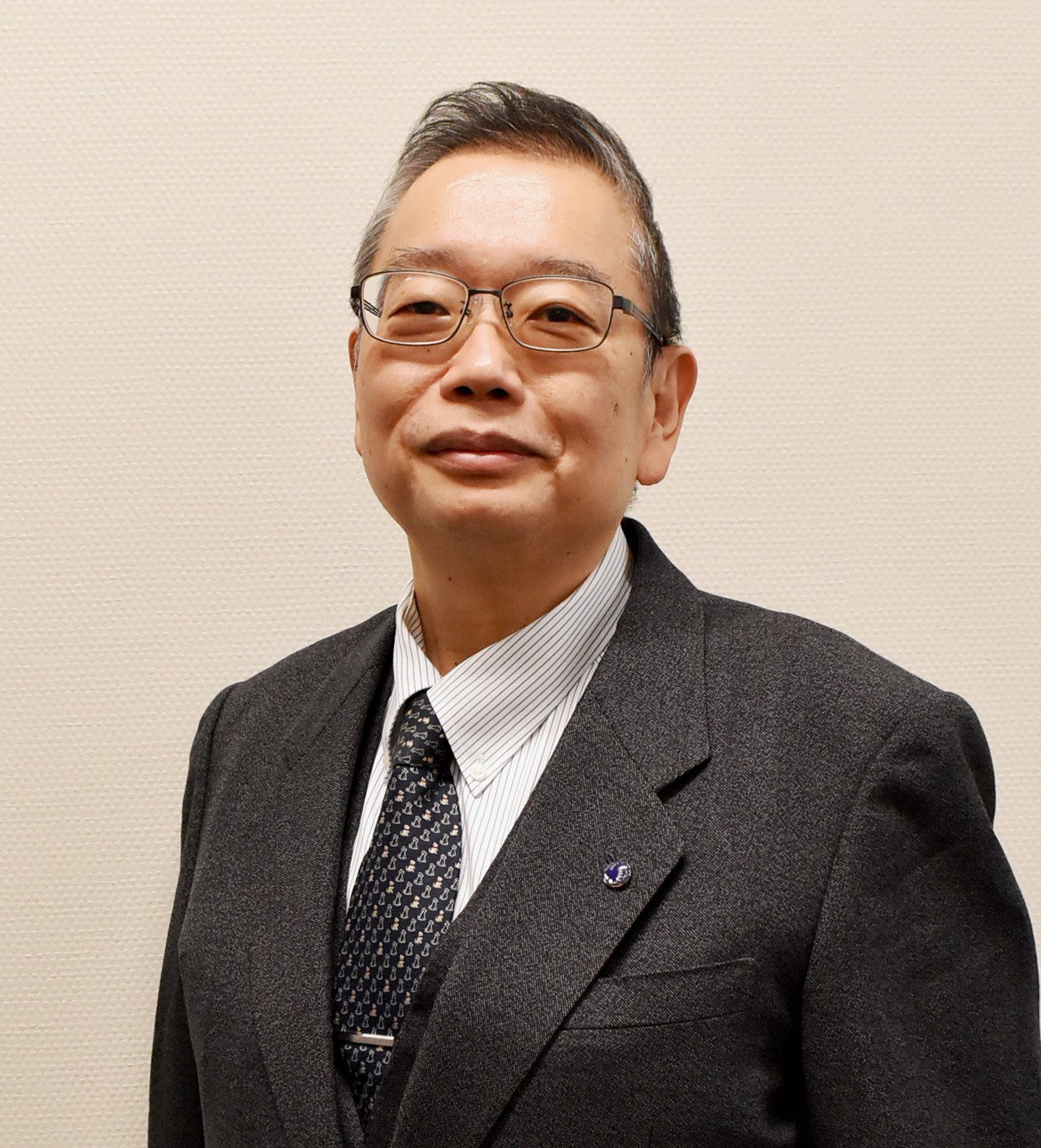
- Agile-X: Platform for semiconductor integrated circuits design and fabrication democratization.
Makoto Ikeda (The University of Tokyo)
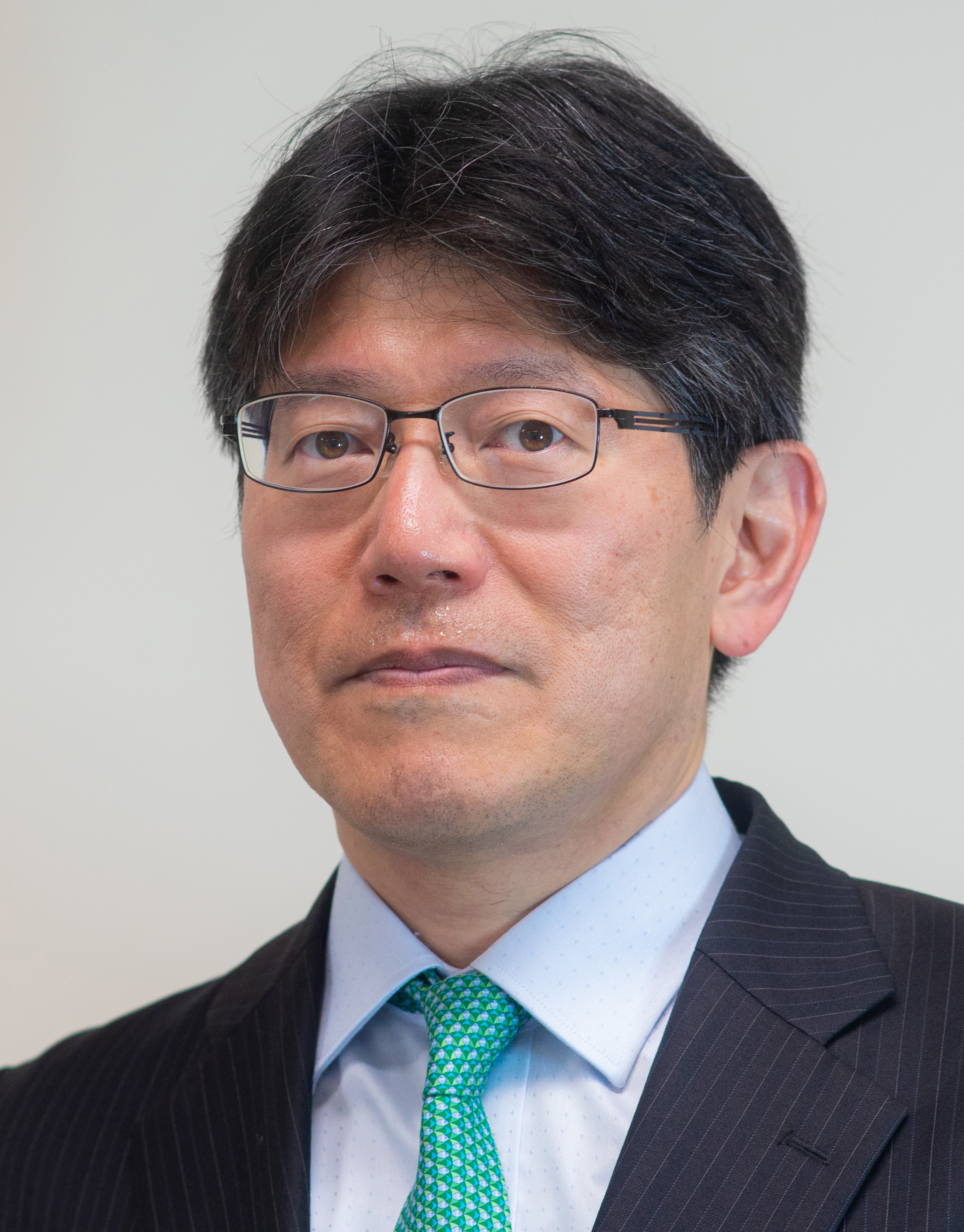
- Discussion on 2D-fabric LSIs with NVM for future green society.
Hitoshi Wakabayashi (Tokyo Institute of Technology)
